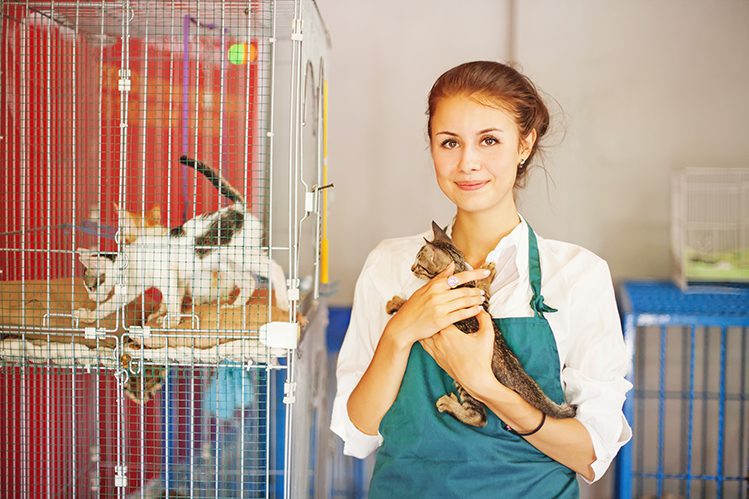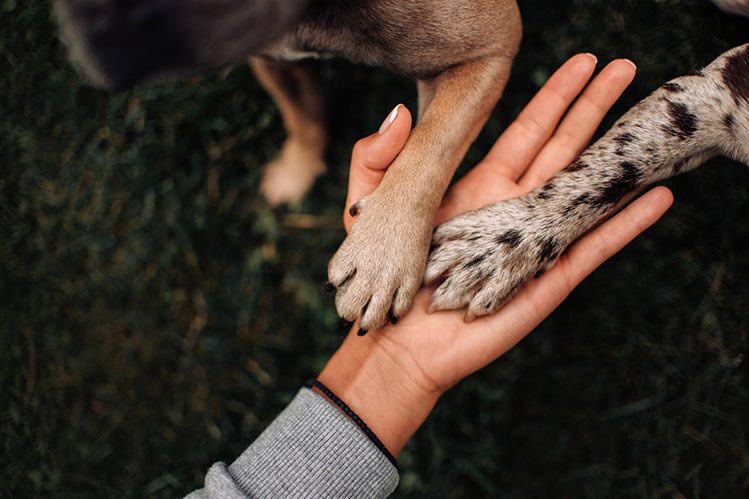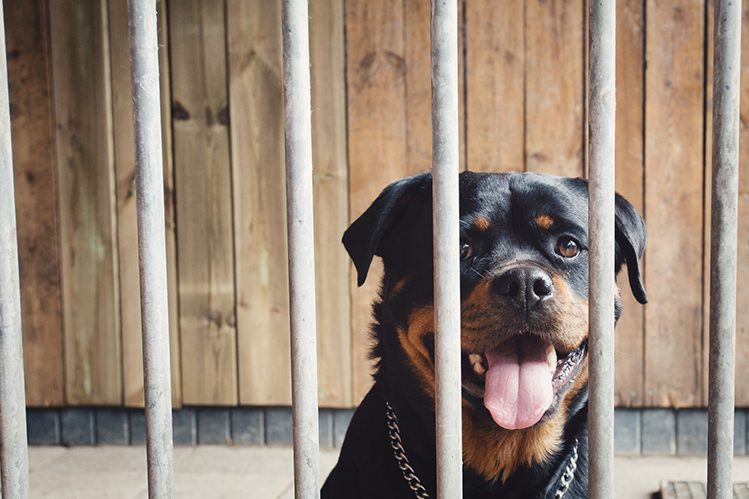
Should I adopt a pet from a shelter?
Adopting a pet from a shelter is a good thing. You not only find a friend, but, without exaggeration, save a life. However, you need to approach this step responsibly, evaluate all the pros and cons in advance. Let’s discuss them together.
- I don’t know anything about the nature of the pet!
What if the pet’s psyche is crippled? How will he behave at home? What is his temperament?
When you get a thoroughbred pet, you have a general idea of his character. Each breed has certain traits. However, it is important to understand that there are no guarantees even in this case. A “superactive” Bengal may turn out to be a couch potato, and a “affectionate” Briton will categorically ignore your bouts of tenderness. In addition, the wrong approach to education and training can quickly ruin the best pedigree qualities of an animal.
What to do?
Ask the staff of the shelter in detail about the pet. They communicate with him every day, cheer for him with their souls and can tell you a lot. You will be warned if the cat or dog you like has behavioral problems.
In shelters, you have the opportunity to meet the cat or dog you like in advance. You don’t have to take your pet home right away. You can supervise it, periodically come to the shelter, play and communicate with a potential pet. This will allow you to get a general impression of his character and feel if there is that same connection between you.
Unfortunately, many shelter animals are really “out of sorts.” Usually they have a complicated history behind them, and life in a shelter is not sugar. Such dogs and cats will need more time to adapt to the new home and more attention from the owner. Over time, your pet will definitely learn to trust you and open up, but you need to be ready to give him a lot of attention, support and warmth. And, perhaps, seek help from a zoopsychologist or cynologist.

- I want a baby, but there are only adults in the shelter!
It’s a delusion. There are a lot of small kittens and puppies in shelters. However, most often they are kept not in shelters, but in overexposure or directly at the curators at home. There is a much more homely and calm atmosphere, and this is important for fragile crumbs.
- I dream of a thoroughbred pet!
If you think that you can only take a mongrel dog or cat in a shelter, we will please you! In fact, you have every chance to find the pet of your dreams.
Shelters often come across purebred animals. But you will have to look and call a lot of shelters until you find “the one” pet.
In addition to general shelters, there are breed teams and relief funds that specialize in rescuing, caring for and accommodating specific breeds of dogs. There are many. If you want a purebred pet, but at the same time you are ready to save, shelter and give a well-fed and pleasant life to a pet that is in a difficult situation, breed funds are a good solution.
- All the animals in the shelter are sick!
Some yes. Not all.
Cats and dogs are living creatures just like you and me. They also get sick, sometimes suddenly. Even if you buy a super healthy purebred pet from a breeder, there is no guarantee that he will not need your help tomorrow.
Starting any pet, you need to be prepared for unforeseen situations and costs.
What to do?
Communicate in detail with the curator of the pet. Conscientious shelters do not hush up information about the health of animals, but on the contrary, they fully inform the potential owner. You will definitely be told if the animals have any peculiarities or chronic diseases.
Don’t worry, there are a lot of clinically healthy dogs and cats in shelters! In addition, in practice, outbred animals have much better health and immunity than their “elite” counterparts.

- The animals at the shelter are infested with fleas and worms.
From such unpleasant incidents, no one is immune. However, reputable shelters regularly treat their pets for internal and external parasites, and you should not worry about this.
When taking a pet from a shelter to your home, you must definitely check with the shelter staff when and by what means the last treatment was carried out from external and internal parasites, when and what vaccination was. In the coming months, it is worth repeating the treatment. Getting a pet from one environment to another, to a new home, is always accompanied by stress, a decrease in immunity, and this makes the pet vulnerable to parasites and viruses. In addition, after the shelter, the pet must be taken to the veterinarian for a general examination and initial health recommendations.
- I want to participate in exhibitions with a pet and win places.
Perhaps this is the only fear to which there is nothing to object to. Most of the cats and dogs at the shelter are outbred. And among the thoroughbred shelter animals, you are unlikely to find representatives of the Show class with all the accompanying documents.
If you really dream of a show career, get a cat or dog from a professional breeder, and the highest class (show).
We have listed the main concerns that people who want to adopt a pet from a shelter face. Dealt with them. Now it’s the turn of the pluses.

- You pay nothing for a pet.
At the shelter or from a volunteer, you can adopt a pet for free or for a modest nominal donation fee. Even if we are talking about purebred animals.
- You save on sterilization or castration.
In the shelter you can take an already sterilized pet, and the issue of unwanted offspring, as well as the procedure itself and rehabilitation, will no longer affect you.
- You gain +100 Karma.
Taking a pet from a shelter, you give him a chance for a new happy life.
It is terrible to think what these unfortunate dogs and cats have gone through. Someone has lost a beloved owner. Someone was brutally abandoned at the dacha. Someone never knew love and wandered the streets. And others were saved by volunteers from abuse.
Yes, a shelter is better than the street and cruel owners. But it doesn’t feel like home at all. It’s hard for the animals in the shelter. They don’t have “their” person. Not enough attention and love. By taking the poor girl in an orphanage, you will, without exaggeration, save her life.
- You do not have to train your pet to the toilet and socialize it.
A huge number of older dogs and cats in shelters have excellent behavioral skills. They know where to go to the toilet, where to eat and where to rest, they know how to communicate with people and their own kind.
Volunteers often work with dogs: teach them commands and socialize them. It is quite possible that you will come from the shelter with a dog that will ideally walk on a leash and perform the most difficult commands the first time.
However, our pets, just like you and me, need time to adapt to new conditions. In the first days after moving to a new home, animals can experience stress. Nervous and experiencing new circumstances, having not yet built a full-fledged trust and strong friendship with you, the pet may behave in an undesirable way, whine, spoil things, or relieve itself in need in the wrong place. This does not mean that you were deceived in the shelter regarding his upbringing. This means that the pet needs increased attention and patience from you. Surrounding him with care, attention, affection and fair, gentle discipline, you will definitely overcome this stress together and become true friends. In case of difficulty, it is worth contacting a specialist who will help and guide your actions in order to quickly establish a trusting contact with the pet.
- You make the world friendlier.
When you pick up a pet from a shelter, you make room for another unfortunate homeless person. You not only save the life of one unfortunate creature, but also give a chance to another.

- You do not encourage the activities of unscrupulous breeders.
Unscrupulous breeders are people without special training who have little understanding of breeding work and breed cats and dogs in inappropriate conditions. This is illegal activity. Such people are not responsible for the quality of their work and the health of the litter, do not provide official documents – and the buyer has no guarantees. Unfortunately, the activity of unscrupulous breeders is only flourishing. They offer more than attractive prices for pets, and there are always those who want to save money. However, having bought a German Shepherd from such a breeder for a very favorable price, after a few months you may find that you do not have a shepherd, but a hereditary yard terrier. And in a sadder scenario – a seriously ill animal.
By adopting a pet from a shelter, you are fighting unscrupulous dog breeding and the problem of homeless animals.
- You will have another reason to be proud.
And you don’t have to be ashamed of it. People who help animals are real heroes. The world is a better place thanks to you.
The decision to adopt a pet from a shelter is not an easy one. And in the future, you can expect many difficulties. If you have doubts, it is better not to embark on this path or take a pause and think again.
But if you still decide, we take our hats off to you and wish you the strongest, happiest friendship with a pet that can only be in this world. You are great!





